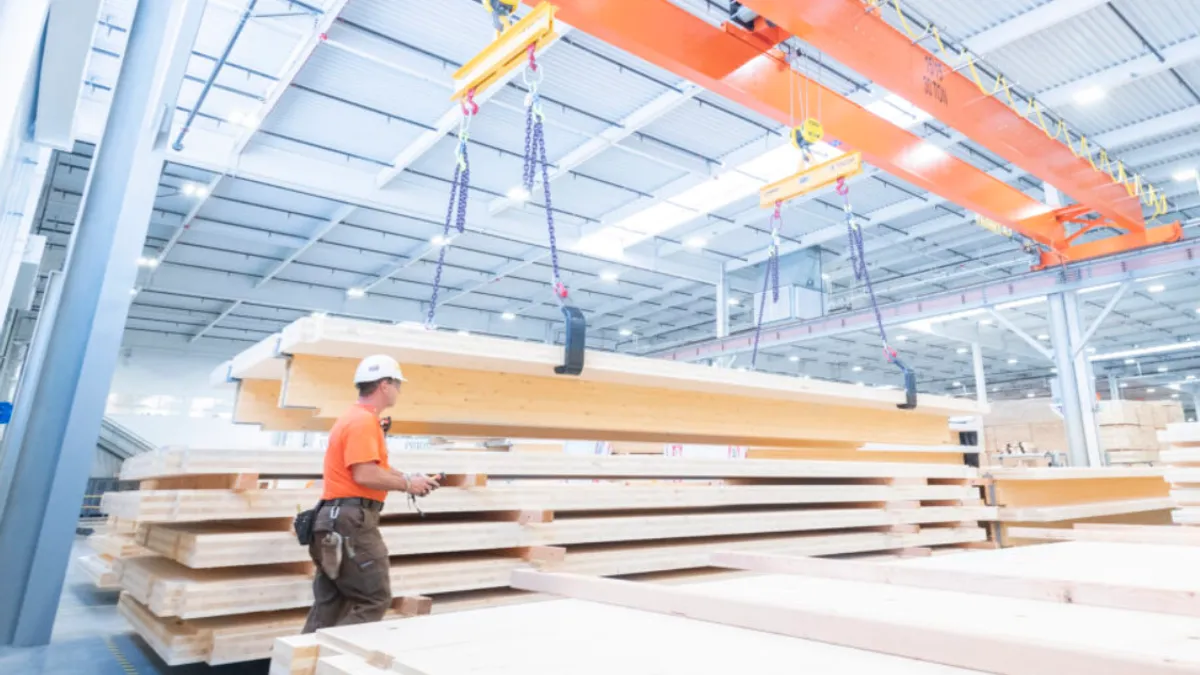Dive Brief:
- Offsite construction company Katerra, which has raised more than $2 billion from backers such as Japanese mega-investor SoftBank, has told employees it is shutting down, The Information first reported.
- The Menlo Park, California-based firm, which was founded in 2015, will likely let go of thousands of employees and exit several construction projects, according to the report. Layoffs have already begun in Seattle, as the company dismissed 117 employees there, the Seattle Times reported.
- "Following a thorough review of strategic business alternatives, Katerra has determined that it must wind down the majority of its U.S. business operations, effective immediately," Katerra reportedly told employees in an email Tuesday afternoon. "Unfortunately, most of our U.S. employees will no longer be working for Katerra in the near future."
Dive Insight:
According to several news reports, an executive told workers Tuesday on a video call that Katerra didn’t have the capital to pay severance packages or unused paid time off. In the email shared with employees, the company reportedly said it was exploring suspending operations, selling assets and restructuring.
The email also said it could not secure debt for construction projects after Greensill, a previous lender, went bankrupt in March. The COVID-19 pandemic also likely contributed to the company’s woes. The Securities and Exchange Commission also had launched an investigation into its accounting practices.
Katerra’s backing largely came from SoftBank’s Vision Fund, which also backed Greensill. SoftBank took a majority stake in Katerra in January, injecting $200 million to save the company from bankruptcy at the time.
The company explored filing for Chapter 11 last year to address debts and the board of directors voted last spring to remove Michael Marks, CEO and founder. Marks’ successor, Paal Kibsgaard, stepped down last month, and the company is now led by consulting firm Alvarez & Marsal, according to The Information.
Projects that Katerra is currently involved with, according to its website, include:
-
A mass timber headquarters for the American Trucking Association in Washington, D.C..
-
A 262-unit, five-story apartment building in Richmond, Virginia.
-
A $75 million mass timber classroom building for the University of Washington’s Foster School of Business.
-
X Denver 2, a 22-story, 412-unit private apartment and retail building in Denver.
During a presentation last month, SoftBank CEO Masayoshi Son named Katerra and Greensill as some of SoftBank’s biggest failures, along with WeWork. Representatives of Katerra did not return calls for this story by the time of publication.
Katerra is not the first offsite construction company to fold during the pandemic. In October, Skender Manufacturing, an offshoot of Skender Construction in Chicago, announced it was closing due to coronavirus challenges. A large part of Skender’s market was hospitality, which took a major hit during the pandemic, and will likely take a long time to recover. Skender Construction remained in business.
Todd Andrlik, Skender Construction’s vice president of marketing, told Construction Dive that the company still believes in the modular model for some jobs.
"Modular building has a place in the industry and provides a solution for certain types of projects," Andrlik said.














